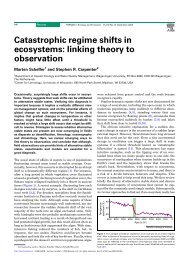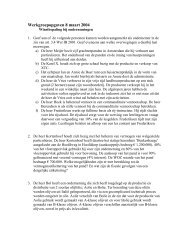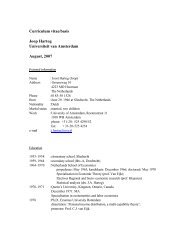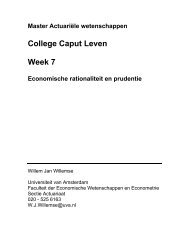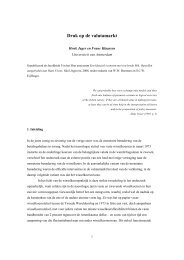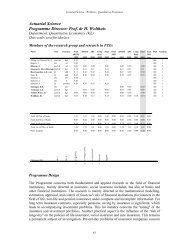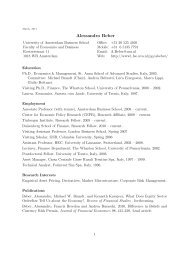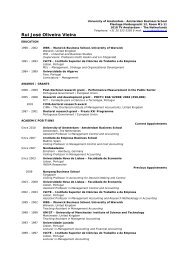A meta-analytically derived nomological network of procrastination
A meta-analytically derived nomological network of procrastination
A meta-analytically derived nomological network of procrastination
You also want an ePaper? Increase the reach of your titles
YUMPU automatically turns print PDFs into web optimized ePapers that Google loves.
1404 W. van Eerde / Personality and Individual Differences 35 (2003) 1401–1418<br />
1.6. Motives<br />
Fear <strong>of</strong> failure and perfectionism have been proposed as motives to avoid certain tasks. In other<br />
words, procrastinators do not want to be confronted with negative feedback on their performance.<br />
This may even result in so-called self-handicapping, the creation <strong>of</strong> impediments to successful<br />
performance (cf. Urdan & Midgley, 2001). That is, <strong>procrastination</strong> is helpful to create the<br />
idea that one could have done better, if only one had started earlier. Now, performing worse can<br />
be attributed to the delay and not to one’s own ability, a so-called ego-defensive strategy.<br />
1.7. Affect<br />
How is <strong>procrastination</strong> related to affect? Not all individuals appear to be concerned about their<br />
<strong>procrastination</strong>, but some may realize they have not adhered to their obligation. Attributions <strong>of</strong><br />
the <strong>procrastination</strong> and resulting time pressure will play a role in the experience <strong>of</strong> outcomes, that<br />
is, when the time pressure is seen as exceeding one’s resources, and is self-attributed, it may<br />
increase feelings <strong>of</strong> guilt, anxiety, and depression. When the time pressure is still seen as manageable,<br />
and if it can be attributed to sources outside oneself, negative psychological outcomes<br />
need not occur. Time pressure may even lead to positive outcomes, such as increased stimulation,<br />
especially for tasks that are experienced as boring (Freedman & Edwards, 1988).<br />
In previous research, <strong>procrastination</strong> has been viewed as a dysfunctional tendency only, and it<br />
has been examined in combination with low affective well-being, in particular anxiety and<br />
depression, which was also a claim in the case <strong>of</strong> neuroticism, which includes both. Although<br />
these two variables are just as likely to be antecedents as outcomes <strong>of</strong> <strong>procrastination</strong>—when<br />
depressed or anxious, one procrastinates, or <strong>procrastination</strong> leads to depression or anxiety—there<br />
is no indication from previous studies whether to consider them as antecedents or consequences.<br />
1.8. Performance<br />
As <strong>procrastination</strong> is defined as postponing or delay on performing a task or decision, it can be<br />
assumed to influence performance, as the time pressure caused by the delay can decrease punctuality<br />
or accuracy. Not only task performance, but broader functioning may be affected by<br />
<strong>procrastination</strong> as well, depending on the task or context (see Van Eerde, 2000). However, there<br />
may be positive effects <strong>of</strong> delay, whether it was purposely or not, for example, more information<br />
or thinking can improve the quality <strong>of</strong> a decision. One <strong>of</strong> the important moderators can be<br />
assumed to be the difficulty <strong>of</strong> the task. Increasing time pressure in difficult tasks is likely to lead<br />
to decreased quality and/or punctuality, but time pressure in performing easy tasks may lead to<br />
increased efficiency. Here it may be important to consider how general someone’s tendency to<br />
procrastinate is. Whereas procrastinating occasionally in a particular context may not be dysfunctional,<br />
performance may be affected negatively when <strong>procrastination</strong> is so general that it<br />
occurs with any task.<br />
Most studies in the literature are concerned with academic <strong>procrastination</strong> <strong>of</strong> students, i.e.<br />
related to studying and behaviour in school or university. The performance measures included<br />
grades, grade point average, missing deadlines, the time spent on preparing a task, and completing<br />
tasks, such as assignments.




